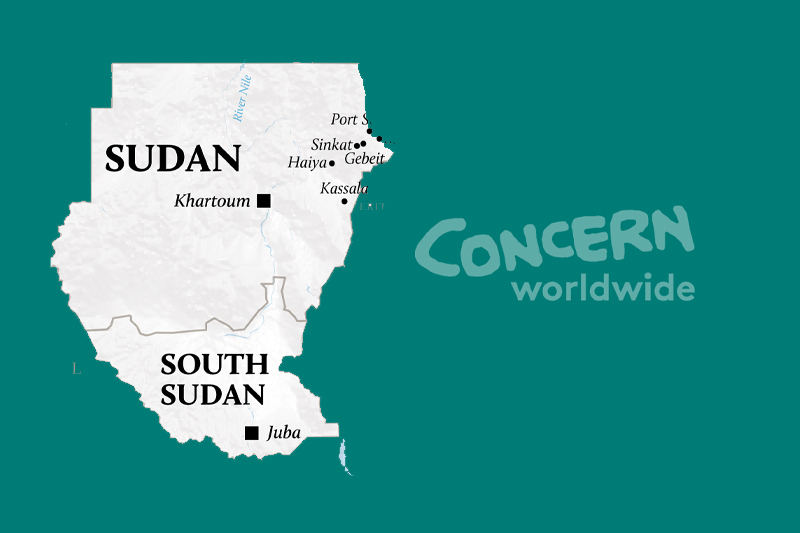
world’s concern about the humanitarian crisis in sudan
The humanitarian crisis in Sudan has captured the world’s attention, with human rights decaying by the day. As civilians suffer from violence and famine, concerns about their welfare continue to mount. The British Minister and other leaders have taken a stand against this tragedy, but what is being done on a global scale? How is the Sudanese government responding? What is the impact of this crisis on its people? In this blog post, we’ll explore these questions and shed light on one of the most pressing issues facing our world today: The Concern About The Humanitarian Crisis in Sudan.
The current humanitarian crisis in Sudan
The current humanitarian crisis in Sudan is a result of violent conflict and political instability that has plagued the country for years. The situation escalated after former President Omar al-Bashir was ousted from power in 2019, leading to a power struggle between military officials and civilian leaders.
As a result of this conflict, millions of people have been displaced from their homes, with many fleeing to neighboring countries as refugees. The lack of access to necessities like food, clean water, and healthcare has also led to severe famine and disease outbreaks.
The violence against civilians continues unabated as well. Reports indicate that women are being raped and children are being recruited into armed groups at an alarming rate. These violations of human rights further worsen the already dire situation in Sudan.
Despite efforts by aid organizations, the scale of the crisis remains overwhelming. With limited resources available for assistance, it’s difficult to provide adequate support for those affected by this crisis. As such, international attention is urgently required if we hope to alleviate the suffering caused by this ongoing tragedy.
The British Minister’s Response to the Crisis
The British Government has expressed deep concern about the humanitarian crisis in Sudan. The Foreign Secretary, Dominic Raab, recently issued a statement condemning violence against civilians and calling for an end to hostilities. He stressed that human rights were eroding in Sudan and urged all parties to respect international law.
In addition, the UK has committed £40 million in aid to Sudan in 2020-21. It will be used to provide vital aid such as food, shelter, and medical care for those affected by the conflict.
The UK has also been diplomatically active on this issue. He has lobbied other countries to support measures such as an arms embargo against Sudan and targeted sanctions on individuals responsible for human rights abuses.
In addition, the UK is supporting efforts towards a peaceful resolution of the conflict by participating in international mediation efforts led by the African Union.
It is clear that the British Government takes this crisis very seriously and is committed to helping ease the suffering of those affected.
The international community’s and the world’s response to the crisis
The humanitarian crisis in Sudan has attracted the attention of the international community, with many organizations and governments taking action to help those affected. A notable response came from the United Nations, which issued a statement condemning violence against civilians and calling for an end to hostilities.
Keep Reading
Other countries have also responded by providing aid and resources to support those affected by the crisis. For example, the United States announced $18 million in new funding for programs aimed at addressing food insecurity in Sudan.
In addition, several non-governmental organizations (NGOs) are working on the ground to provide aid and relief efforts. These include Oxfam International, Doctors Without Borders/Medecins Sans Frontieres (MSF), and UNICEF.
Despite these efforts, there remains a critical need for continued support from the international community. Millions of people are still facing displacement, hunger, and violence as a result of this ongoing crisis. As such, we must continue to work together toward finding effective solutions that can bring lasting change to those affected by this tragic situation.
The Sudanese government’s response to the crisis
The Sudanese government has been criticized for its response to the ongoing humanitarian crisis in the country. Although he has made some efforts to deal with the situation, many believe that it is not enough.
One of the main criticisms is that the government has not done enough to protect its citizens from violence and atrocities perpetrated by armed groups. Clashes between government forces and rebel groups have resulted in widespread displacement and a lack of access to necessities such as food, water, and health care.
Another issue is that there are reports of human rights abuses by security forces against civilians who protest or speak out against the government. This includes arbitrary arrests, torture, and even killings.
Despite these concerns being raised domestically and internationally, the Sudanese government has been slow to act. Promises have been made regarding the investigation of crimes committed during this period but little progress has been made so far.
WHEREAS there are positive steps that can be taken by the leaders of Sudan towards resolving this crisis; Much more needs to be done if real change is to be achieved.
The impact of the crisis on the Sudanese people
The current humanitarian crisis in Sudan has had a devastating impact on the lives of millions of Sudanese people. The crisis has resulted in widespread violence, displacement, and food insecurity, leaving many families struggling to survive.
One of the most significant effects of the crisis has been the displacement of more than 2 million people from their homes. These people are forced to flee because of conflict and violence, often leaving everything behind. Many people live in overcrowded camps or temporary shelters, with limited access to necessities such as clean water and sanitation facilities.
The crisis also poses a major threat to food security in Sudan. With many farmers unable to farm their land due to insecurity and displacement, crop yields have been severely affected leading to a rise in food prices which has made it difficult for already poverty-stricken families.
Moreover, women and children have been worst affected by this humanitarian disaster. Women are victims of sexual exploitation at an alarming rate, while some children are recruited into armed groups or used as sex slaves.
The impact on education also cannot be ignored; Thousands of schools have closed across Sudan as teachers stopped reporting for duty after months without pay, resulting in more than three million children missing school and a nationwide educational collapse.
The ongoing humanitarian catastrophe across much of Sudan continues to have a devastating impact on countless innocent civilians. Aid organizations should continue to provide assistance where possible to not only mitigate but ultimately resolve the issues Sudanese citizens face due to the erosion of human rights within their borders.
Conclusion
The humanitarian crisis in Sudan is a major concern for the international community. The suffering of the Sudanese people is unacceptable and immediate action must be taken to address the root causes of this crisis.
The British minister’s response shows there are world leaders determined to address the issue, but more needs to be done by other countries too. Everyone needs to come together and work towards finding a solution.
It is also important that we continue to focus on what is happening in Sudan and hold those responsible for human rights abuses accountable. This can happen only with the continuous efforts of governments, non-governmental organizations, and individuals worldwide.
Ultimately, if we want to see a change in Sudan, we must take collective action before it is too late. We cannot ignore the voices of those who are suffering – let us all do our part to end this humanitarian crisis once and for all.











